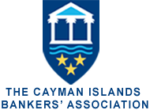THE CAYMAN BANKING CERTIFICATE
The Cayman Islands Bankers’ Association (CIBA) and University College of the Cayman Islands (UCCI) form a Strategic Alliance to provide residents the opportunity to develop their knowledge of banking. This programme is designed to assist students with their professional development in the banking field. We encourage everyone interested in improving their knowledge of banking to undertake this exciting professional development programme.
There are many advantages to attending UCCI:
- Small classes and personalized attention with local and international faculty
- A personal academic advisor to assist with course selection and registration
- The demands of a university environment without the challenges of a different culture
- It is more affordable than overseas institutions
- Scholarships from Government and Industry Partners are available
To register, please email the University College of the Cayman Islands at info@ucci.edu.ky, Annette Murphy (UCCI) at amurphy@ucci.edu.ky or Richard Lewis (CIBA) at ciba@cibankers.org.
Programme Length
The CBC’s programme is one year for full-time students who would complete the seven required courses.
Additional courses may be necessary depending on the level of competency in Mathematics and English Language.
- CBC-ACC 121 Introduction to Accounting
- CBC-ACC 201 Financial Accounting
- CBC-ACC 333 Company Law
- CBC-ECO 221 Principles of Microeconomics
- CBC-ECO 222 Principles of Macroeconomics
- CBC-ENG 231 Business Communications
- CBC-FIN 250 Introduction to Banking (Workshop)
Introduction to Accounting (ACC121) – Credits: 3
This course offers a comprehensive and practical approach to modern-day principles of accounting. It focuses largely on accounting for external reporting and the generation of financial information necessary for managerial decision making. This includes the financial statements, balance sheets, income statements, statement of cash flows and retained earnings statements necessary to report to investors and creditors of large corporate business entities.
Financial Accounting (ACC 201) – Credits: 3
Pre-requisite: ACC 121 or permission of the lecturer. This course places emphasis on the accounting principles and procedures applied to Corporations. Topics include equity structure, long-term liabilities, investments and fair value accounting, common stocks, bonds and statement of cash flows, as well as financial statements analysis.
Company Law (ACC 333) – Credits: 3
This course examines the laws and principles that are applicable to business corporations. Topics include the formation of companies, authorized and issued share capital, the rights of shareholders and creditors, changing company names, the reporting requirements of companies and the dissolution of companies.
Principles of Microeconomics (ECO 221) – Credits: 3
The purpose of this course is to provide students with an understanding of economic markets and market economies. The concepts of demand, supply, production, prices, allocation of resources and market failure are studied.
Principles of Macroeconomics (ECO 222) – Credits: 3
This course looks at a range of macroeconomic issues and policies, including the determinants of unemployment, inflation, international trade, national income and gross domestic product. Students examine the use of fiscal and monetary policies in achieving macroeconomic objectives.
Business Communications (ENG 231) – Credits: 3
The purpose of this course is to provide students with the essential writing, comprehension and speaking skills necessary for effective communication within the workplace. It seeks to provide a basis for the life-long development of communication techniques.
Introduction to Banking (FIN 250) – Credits: 3
This workshop provides an overview of the banking industry, both in the context of the Cayman Islands and internationally.
Participants obtain an understanding of the operations of the banking sector from industry professionals. Topics include monetary analysis, the history of banking and finance, market participants, banker/customer relationships, foreign exchange, retail banking products and services, the role of Central Banks and more.
